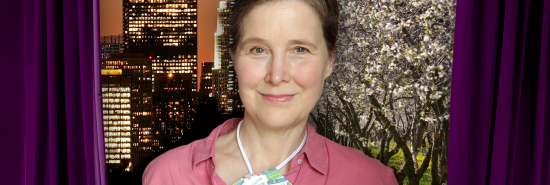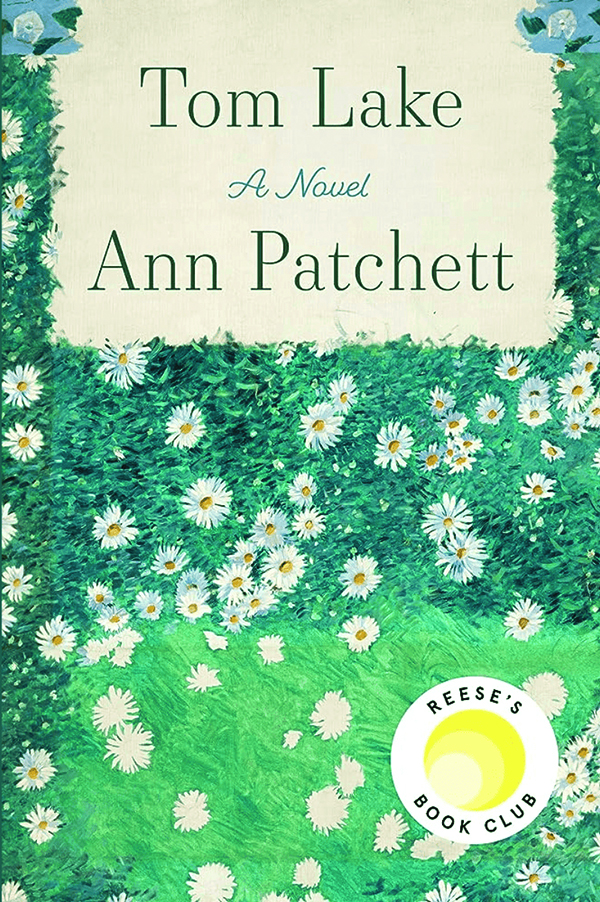
Review: Tom Lake by Ann Patchett
Malcolm Forbes
Ann Patchett knows how to hook readers and reel them in. Her finest novels, such as her 2001 breakout Bel Canto, as well as 2016’s Commonwealth and 2019’s The Dutch House, get underway with an arresting and inviting opening scene, each carefully crafted, beautifully staged, and comprising a surprise event, shocking act, curious circumstance, or beguiling state of affairs that piques our interest enough to make us stick around and keep turning those pages.

For her latest novel, Tom Lake, Patchett has opted for a quieter but no less engaging opener, one that is not so much jaw-dropping as eyebrow-raising. At their high school in New Hampshire, Laura and her friend Veronica are helping with auditions for the community theater production of Thornton Wilder’s Our Town. After watching one adult after another flounder and fail on the stage, Laura realizes that she is being taught a valuable life lesson: “What I was seeing was nothing less than how to present myself in the world.” Bored and annoyed by the lack of talent on show, undaunted by her theatrical inexperience, and convinced that she has learned enough from the amateur actors’ mistakes, she puts herself forward for the role of Emily. A star is born, and at the same time Laura is reborn as Lara.
ALL THE GENERATIONAL STEREOTYPES ARE WRONG, EXCEPT THAT BIG ONE
But not all of that first chapter, or indeed the whole novel, plays out in the past. Tom Lake is made up of two narratives. One unfolds in spring 2020 and centers on 57-year-old Lara and her family on their cherry farm in northern Michigan. The other is Lara’s account of her foray into acting and the intense but short-lived romance she had over the summer of 1988 with a talented, charismatic actor. Patchett artfully synthesizes both narrative strands into a cohesive and immersive tale of a life lived with golden opportunities, occasional setbacks, and no regrets.
The pandemic has brought Lara and her husband Joe’s three grown-up daughters back to home and hearth. Nell, 22, an aspiring actress, is “fragile and pure.” Maisie, 24, a trainee veterinarian, is “logical and strong.” Emily, 26, a former wild child, is a farmer who will one day take over the family business. With lockdown preventing the farm’s regular workers from helping with the harvest, the girls lend a hand picking fruit in the orchard. To break the monotony and lighten their loads, their mother gives in to their demands and tells them in installments about the time she dated Peter Duke — back then an unknown actor but destined for big things; later a successful crowd-pleasing actor whose family-friendly films captivated the girls as teenagers; and finally, an accomplished “Very Serious Actor” who conquered Hollywood and won plaudits and an Oscar.
Lara’s impatient daughters are keen for her to cut to the chase and get to the part of the story involving “Duke,” but first she has some gaps to fill. She picks up where she left off, revealing that she received a standing ovation at the end of that audition at her high school, and from that day on believed she had found her vocation. At college, she plays Emily again and is spotted by a director who whisks her to Los Angeles to take a screen test. She makes a movie that takes years to see the light of day, but while waiting for it to appear, she is offered the chance to reprise the part of Emily in two separate productions of Our Town: first on Broadway, then in Michigan at a summer stock company called Tom Lake.
So begins a fleeting yet memorable episode of Lara’s life. She meets Duke and learns that he is to play her fictional father, Editor Webb. Duke takes Lara under his wing and very soon into his bed. When not under the covers or in rehearsals, they spend long lazy hours swimming in the lake, drinking tequila, and playing tennis with Duke’s more level-headed brother Sebastian and Lara’s understudy Pallace. On a day off, the play’s director invites Lara to visit his family’s cherry farm, and in doing so unwittingly sows the seeds of her future life. An act of betrayal ends an affair, a cruel twist of fate puts paid to a performance, and a major wake-up call brings the curtain down on an acting career.
Like the work of Anne Tyler, much of Patchett’s writing explores family relationships — tight bonds, frayed and knotted ties — with little in the way of full-scale tragedy or catastrophic upheavals. Patchett is reluctant to kill her darlings, and good cheer and Panglossian optimism always preponderate over doom, gloom, nastiness, and cynicism.
Tom Lake offers more of the same. “Actors are all about luck,” Duke says, and he and Lara are blessed with an abundance of it. Her entry into, and progress through, the acting world consists of a string of lucky breaks, most of them too good to be true. She is never exploited and doesn’t have to “go upstairs to get the part.” Nell may complain about tedium, but she and her family are safely cocooned from COVID-19 and experience a lockdown unafflicted by sickness, poverty, anxiety, and grief.
In the present, Lara’s girls listen as their mother travels back down memory lane. But Lara’s recollections don’t dominate their days. Maisie tends to sick animals, Nell vents her frustration at being “trapped with my family on the farm while the world goes up in flames,” and Emily wounds her parents with the bombshell that she does not plan on having children with her fiance Benny because of the dire state of the planet.
But then again and again, Lara returns to her story. The deeper into it she gets, the more her daughters come to view her erstwhile lover and their childhood hero in a markedly different light. Nell says their mother is “putting together the whole picture” for them: “Telling us everything you previously kept from us.” But there is one crucial part of the picture that Lara chooses not to show the girls, and it concerns the time, long after Tom Lake, that Duke reappeared briefly on the scene and made his presence felt.
The stakes aren’t as high here as in past offerings, but Patchett’s novel still makes for intelligent, poignant, and absorbing fiction. It channels great literature (Chekhov, King Lear, and of course, Wilder). It showcases storytelling expertise. It paints a vivid portrait of a young actress. And it imparts and illuminates a simple but relatable truth about triumphing, faltering, then being content with what you’ve got.
CLICK HERE TO READ MORE FROM THE WASHINGTON EXAMINER
Malcolm Forbes has written for the Economist, the Wall Street Journal, and the Washington Post. He lives in Edinburgh.
